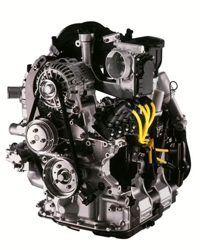C3066 Engine Code Repair
Meaning of C3066 engine trouble code is a kind of chassis trouble code and theoretically you can drive for a few weeks or even months with a broken MAF sensor. You will notice a decrease in gas mileage and over time the car will eventually start stalling a lot. At a shop, the replacement cost is between $240-$400 depending on the car, but that's usually the cost of parts because the labor is relatively simple.
C3066 Fault Symptoms :
- Check engine light comes on
- Engine stalling or misfiring
- Engine performance issues
- Car not starting
If one of these reasons for C3066 code is occuring now you should check C3066 repair processes.
Now don't ask yourself; What should you do with C3066 code ?
The solution is here :
C3066 Possible Solution:

Excessive air inflow can be caused by a vacuum leak, a dirty sensor or, an exhaust gas recirculation valve not closing properly. If the problem is not enough fuel, the culprit may be dirty injectors or fuel filters, a weak fuel pump or a leaky fuel pressure regulator. The lean fuel mix error may be accompanied by rough idling, engine misfires, hesitation during acceleration and overall poor engine performance.
C3066 Code Meaning :
C
OBD-II Diagnostic Chassis (C) Trouble Code For Engine
3
Ignition System Or Misfire
0
Injector Circuit Malfunction - Cylinders
6
Cylinder 1 Injector Circuit Low
6
Crankshaft Position Sensor B Circuit Malfunction
Regarding the C3066 code, it would probably be worthwhile to carefully inspect the wire harness near the intake manifold bracket. This is done most easily from below the car in the area near the oil filter.
C3066 OBD-II Diagnostic Chassis (C) Trouble Code DescriptionC3066 engine trouble code is about Crankshaft Position Sensor B Circuit Malfunction.Main reason For C3066 CodeThe reason of C3066 OBD-II Engine Trouble Code is Injector Circuit Malfunction - Cylinders. |
C3066 DTCs may also be triggered by faults earlier down the line. For example, a dirty MAF sensor might be causing the car to overcompensate in its fuel-trim adjustments. As a result, oxygen sensors are likely to report fuel mixture problems.
